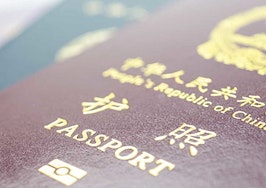The United Arab Emirates (UAE) is a unique world. Sunshine year-round, pristine sun-baked beaches, desert safaris and a host of breathtaking structures such as Burj Khalifa and Palm Jumeirah are some of the gorgeous assets UAE tempts tourists with as they search for a memorable sojourn.
And lured they are. The tourism industry of the UAE is surging ahead in leaps and bounds and shouldering a fast-developing economy that once relied on oil as its main source of income. And the UAE is expected to continue this steady growth well through the 2020 Dubai Expo.
Here are five reasons to invest in the UAE:
1. More space for the money
Within lies a great opportunity for real estate investment in a cosmopolitan market where prime property prices are still comparatively low.
A million dollars in Dubai will buy you 146 square meters against a mere 25.2 in London, 40.2 in New York and 95.7 in Mumbai. With the number of tourists and subsequent demand for residential and rental spaces expected to shoot through the roof in the coming months and years, the wise might heed the cue.
2. Growing tourism, thus growing economy
Considering the total contribution of travel and tourism to the GDP — investment, income generation and induced spending — the World Travel & Tourism Council (WTTC) report said the sector added 8.4 percent of GDP (Arab Emirates dirham 117.4 billion) in 2013 and was expected to rise by 4.5 percent in 2014, and to then rise by 3.2 percent each year to 8.5 percent of GDP (AED 167.4 billion) in 2024.
This is no shot in the dark. As the UAE heads closer to the Dubai Expo 2020, job seekers, businessmen and large businesses are rushing toward Dubai, in particular, and the UAE in general, to cash in on revenue expected from visitors.
In the runup to the expo, Dubai alone is expecting around 20 million tourists a year, which is 8 million more visitors than now. WTTC said the figure for the UAE would jump to about 40 million visitors a year by 2024.
The report said travel and tourism directly contributed about 5.7 percent to total employment in the UAE and added that the number would rise 1.8 percent per year to 369,000 jobs by the end of 2024.
The sector attracted capital investment of AED 21 billion in 2013, which rose by around 9 percent in 2014 and will rise by 5.1 percent per year over the next 10 years (to AED 37.8 billion in 2024).
3. Government recognition of growth
Catering to that massive hike in numbers would be no small feat, but the UAE and Dubai seem ready for the additional action.
“The government has stepped up pressure on the developers with regards to completion of promised ventures,” Bayut.com CEO and co-founder Haider Ali Khan said. “No would not be taken as an answer, and those failing to deliver could end up with strict punishments, like cancellation of licenses.”
Real estate investors don’t have to be UAE citizens to invest in free zones across the country. Though you have to be a Gulf Cooperation Council national if you want to own property in places other than free zones, you can always set up a business by leasing office or retail space on contract from other Emiratis.
You need to apply for a business license to open a business in Dubai. The license gives you the authority to sponsor a limited workforce. However, if you partner with a UAE national, your business can sponsor as many people as you like, provided they get approval from the government.
The business permits needed for international investors in the UAE depend on the sector in which you are investing. In the real estate industry, you can invest or buy land in a free zone without having any permit. Investors don’t even need a residency visa to invest here.
Many foreigners have invested in residential units in Dubai and Abu Dhabi and have leased the premises out. They visit Dubai — or whichever emirate their investment resides in — have a good time out, collect their rental revenue and fly back to their country after enjoying the luxury lifestyle the country has to offer.
Also, buying properties worth more than AED 500,000 means you become eligible for a residency visa as well.
4. Freedom from tax
Investing in UAE real estate is completely tax-free. Whether you are buying a retail unit, office space or even a residential villa or apartment, no tax is levied upon you regardless of your nationality.
However, there is a property transfer fee of 4 percent of the property value that you have to consider if you are buying properties in Dubai.
But there some things an agent or broker fielding a query from an investor client should consider when dealing with the UAE.
Like in other parts of the world, project delivery dates in the UAE seldom extend beyond those promised.
Keeping that in mind, an investor should always ask for the following documents from the developer before paying the booking fee: the land title deed, escrow account number, Dubai Land Department approvals and agreement with the contractor.
5. Demand for housing
Investing in the UAE, particularly Dubai, in the near future could give buyers a fair chance of multiplying his or her fortunes, as the country braces itself for an unprecedented influx of visitors in the next decade.
Khan said irrespective of the fluctuations in the real estate market, assets directly or indirectly connected to the tourism sector — furnished apartments on short-term leases, commercial spaces, affordable hotels, shops and retail outlets in proximity to famous landmarks or recreational parks — would remain in demand and be a safe and appreciating investment.
If you or your client are vying to invest in the real estate sector, the UAE is your oyster. The opportunities are boundless and the time is now.
Tomorrow talk
Despite some analysts predicting a slowdown in the Dubai market, a greater number believe Dubai’s realty sector is poised to grow throughout the year.
The optimism hinges on the rising population of the emirate. A clear manifestation of a bright forecast is the issuance of over 200,000 work permits in the first quarter of 2015.
The rising population will easily absorb the expected supply of additional units and ward off any negative speculation regarding the market deadening.
As more and more people from around the world head to the UAE, there will be many on the lookout for affordable living during their tenure.
Even if pockets aren’t that deep, investing in even a small asset could generate interest for tourists or small businesses wanting to cash in on the visitor influx and could create handsome returns for the investor in the future.
Azam is the editor at Bayut.com, the UAE’s leading real estate portal. He is an MBA and has been associated with the retail, media and real estate industries.
Inman Connect San Francisco is right around the corner — register now and save $200!



